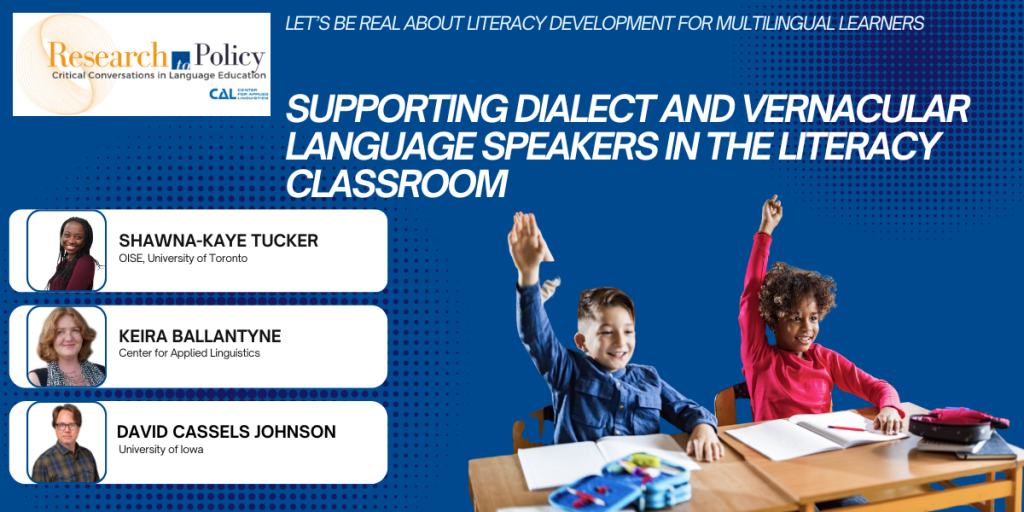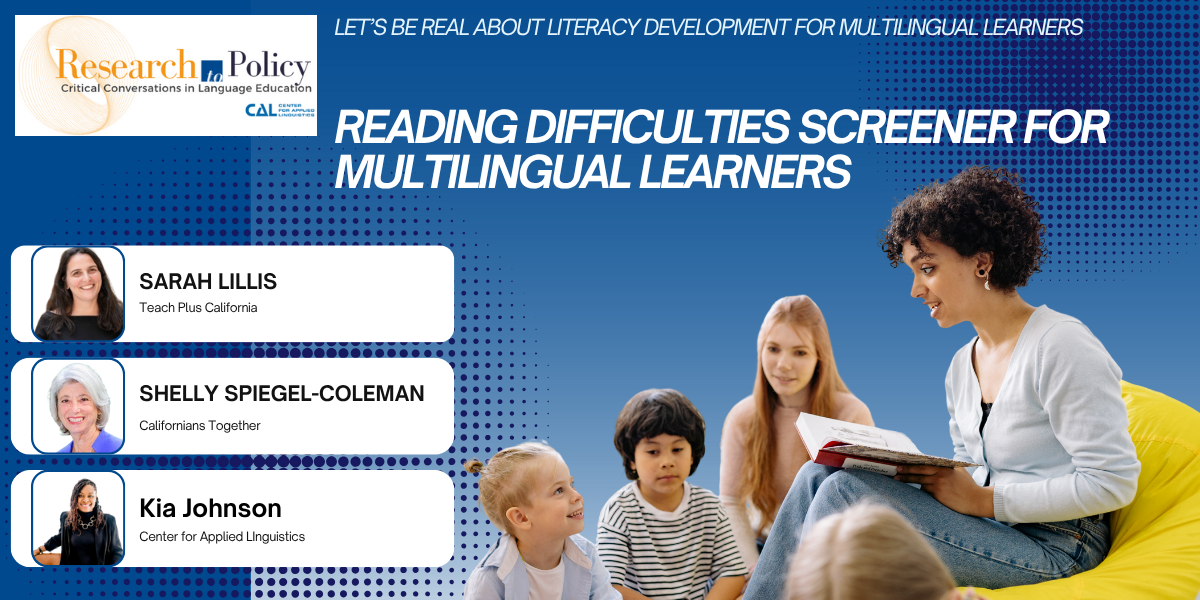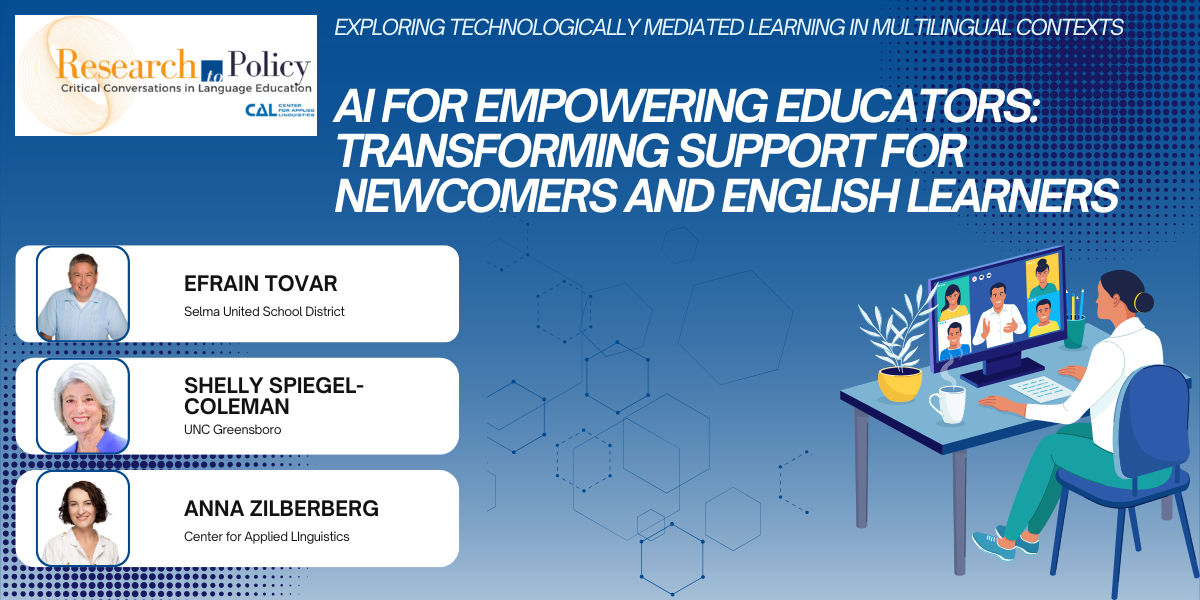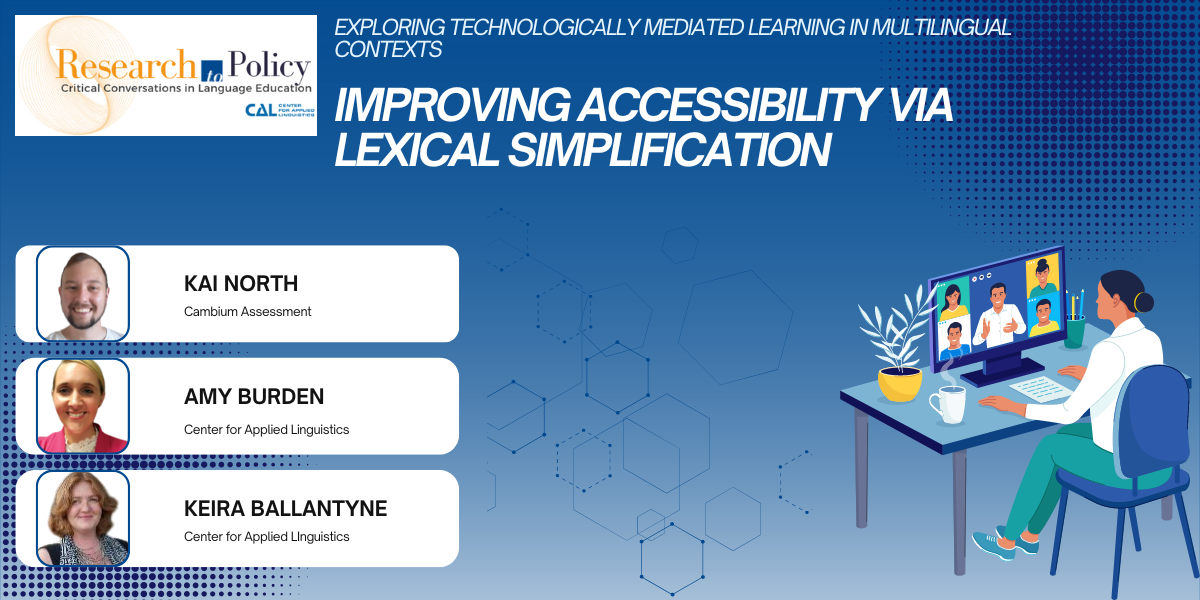WEBINAR ANNOUNCEMENT
TITLE: Supporting Dialect and Vernacular Language Speakers in the Literacy Classroom
DATE: August 12, 2025
TIME: 4:00–4:30 p.m. EDT

DETAILS:
Students who speak dialects and Creole languages at home make up a significant and growing portion of classrooms across North America. In the U.S., this population is largely represented by speakers of vernacular dialects such as African American Vernacular English (AAVE) as well as English-based Creoles spoken in many immigrant communities (e.g., Jamaican Creole).
Given the unique relationship between these home languages and standardized English, students often encounter distinct challenges in learning to read and write. At the same time, they bring valuable linguistic strengths that are frequently misunderstood or overlooked in instructional policy and practice. These students are often underserved in language and literacy classrooms—not due to a lack of potential, but because their language backgrounds do not entirely align with common models of English language support (e.g., ESL provisions).
This webinar invites educators, administrators, and decision-makers to explore how we can better support the literacy development of students who speak dialects and primarily use oral languages. We’ll consider: What are the most pressing issues facing this student population? What changes in classroom practice and policy could make a difference? What actions can district and school leaders take to create more linguistically responsive systems?
Join Dr. Shawna-Kaye Tucker and the CAL team in what promises to be an insightful and productive conversation.
SPEAKER:
Dr. Shawna-Kaye Tucker is an assistant professor of Applied Linguistics at OISE, University of Toronto. Her research focuses on the language and literacy development of learners with English as an additional language, with a particular emphasis on writing. As a Caribbean native, she carries out extensive work with children who speak dialects and Creole languages–– exploring how schools can best support English literacy development through evidence-based practices that validate learners’ linguistic resources.





